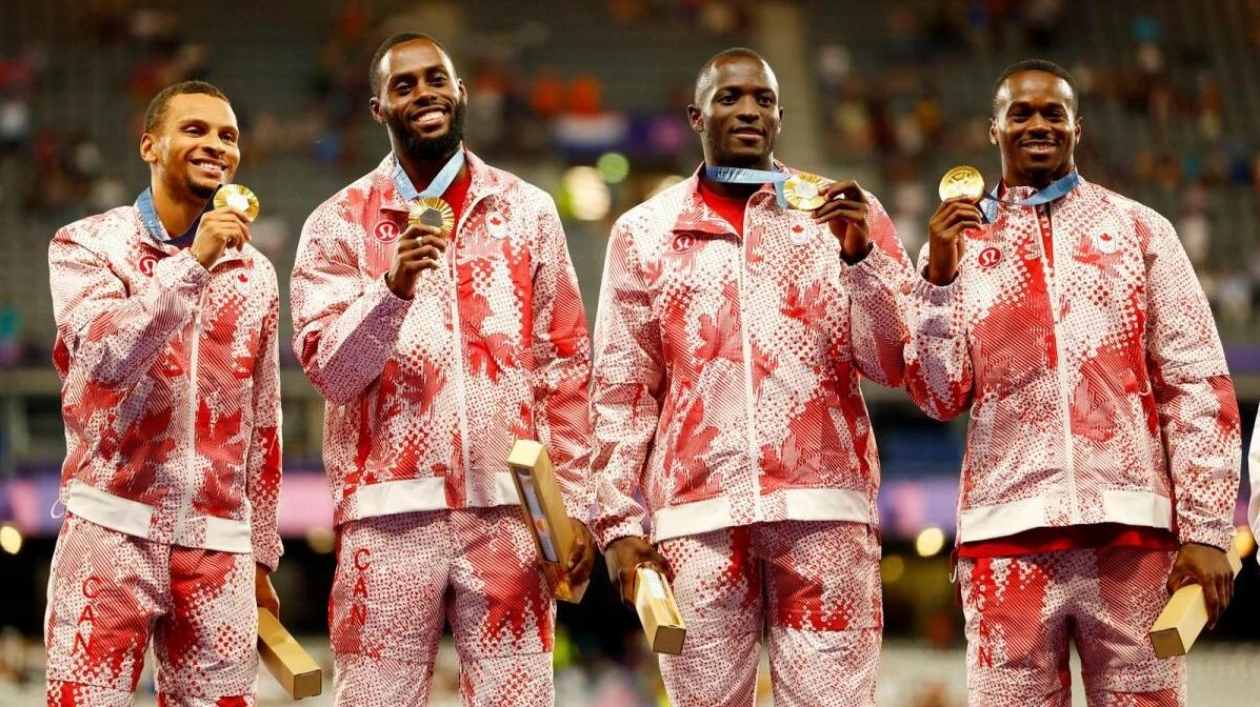Canada secured their second men’s Olympic 4x100m relay title on Friday, capitalizing on a botched changeover by the United States, who were subsequently disqualified. Andre de Grasse delivered a stellar final leg, propelling the Tokyo silver medalists to victory in 37.50 seconds, matching their 1996 triumph. South Africa’s Akani Simbine, a perennial nearly-man in the individual 100 meters, and Britain’s Zharnel Hughes also excelled in their final legs, earning South Africa silver in a new African record of 37.57 and Britain bronze in 37.61, respectively. Canada, starting in the outer lane, got off to a strong start with Aaron Brown. Jerome Blake and Brendon Rodney maintained their competitive edge with smooth changeovers, skills finely tuned under coach Glenroy Gilbert, a member of the 1996 winning team. As the final leg commenced, Japan led from Italy, who fielded Tokyo 100m champion Lamont Marcell Jacobs on the second leg. De Grasse, Simbine, and Hughes surged ahead, with Canada narrowly clinching the win.
“It feels pretty amazing,” De Grasse shared with reporters. “To be out with these guys, my brothers, I’ve been with them since the beginning of time and it feels good to bring it to fruition.” Brown echoed the sentiment, stating, “The individuals didn’t go our way but when we come together we’re a real strong team. You can never count us out, we feel great.” Fred Kerley, the individual bronze medalist, crossed the finish line far behind, having been part of the failed changeover that prevented the U.S. from reaching the final in the previous Olympics. This time, however, the fault lay earlier in the race. Christian Coleman provided a strong start for the U.S. but ended up nearly colliding with Kenny Bednarek, the 200m silver medalist, during the first handover.
“It just didn’t happen,” lamented Coleman, reflecting the U.S.’s recurring issues with the event, often due to not prioritizing it as other nations do. “We practised a lot. Me and Kenny have been on the team a few times, and we felt really confident going out there. It’s part of the sport,” Coleman added. “We wanted to do it, we wanted to bring it home, we knew we had the speed to do it but this is a risk-reward type of thing.” The U.S.’s latest failure marks a long-standing issue in an event they have dominated with 15 wins, 13 more than any other nation, but have not won since 2000, with only a silver medal from 2004 to show for their efforts. Since 1995, in both Olympics and World Championships, the U.S. has suffered 11 dropped batons, disqualifications, or bans, prompting former American sprinting great Carl Lewis to call for systemic change.
“It is time to blow up the system. This continues to be completely unacceptable,” Lewis asserted. “It is clear that EVERYONE at USATF is more concerned with relationships than winning. No athlete should step on the track and run another relay until this program is changed from top to bottom.” Hughes and third-leg runner Nethaneel Mitchell-Blake were part of the British team that finished second in Tokyo, but were later stripped of their medals due to a doping offense by teammate CJ Ujah.






